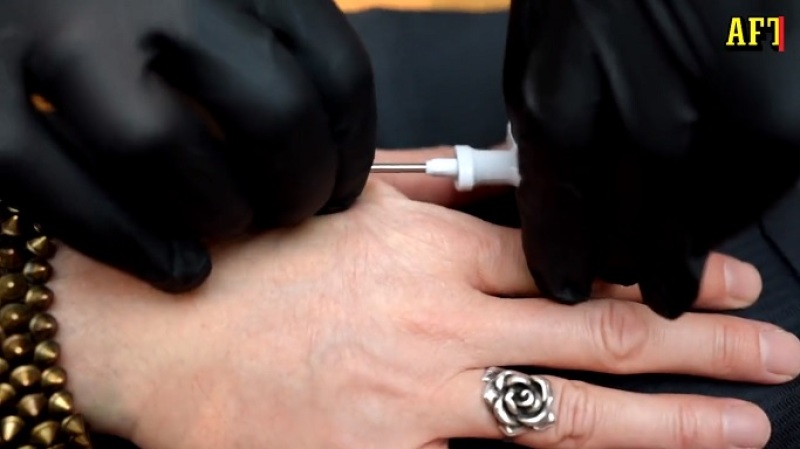
As a means of stopping the transmission of sicknesses, the Defense Department has developed what one military doctor described as "a human check engine light"- a next-generation device that might eventually prevent a future pandemic.
According to CBN News, it is essentially a small hydro-gel sensor that is placed just under the skin and was initially created to aid in the treatment of diabetes.
Dr. Matthew Hepburn M.D., vaccine lead for Operational Warp Speed, explained what they do.
"Well the science is interesting but we're translating that into application and benefit and its something frankly the Department of Defense does really well," he told CBN. "We can see science but we say, we have a mission, we have a national security mission."
The small hydro-gel bio-sensor will be implanted under the skin, and it will be able to detect changes occurring at the tissue level. It may, noted the source, determine the amount of lactate present in the body.
The sensor, however, does not provide any information about the kind of illness a person may be acquiring. It's more of a warning than anything else. Hepburn compares it to the indicator light on a car's dashboard.
"A check engine light doesn't say, 'There's a problem, you're out of oil.' It just says, 'There may be something wrong with your engine, take a closer look," he said. "So the idea of the sensor is, check engine light goes off, then you need to do some more specific tests to figure out if you have COVID or something else wrong with you."
Earlier reports indicated that the Defense Advanced Research Projects Agency (DARPA) had been developing a microchip that could be inserted under a person's skin for the purpose of detecting COVID-19. Dr. Hepburn, who was commissioned by DARPA to "take pandemics off the table," said the chip had never been utilized outside of the military.
Once implanted, the chip would monitor the patient's blood for the presence of any virus that could be present. In the event that COVID-19 was discovered, the patient would be notified via the chip's signal. To double-check the chip's diagnosis, a quick blood test may be self-administered.
"We can have that information in three to five minutes. As you truncate that time, as you diagnose and treat, what you do is you stop the infection in its tracks," Hepburn said.
Profusa, a private sector business, was reportedly responsible for the development of this technology. They originally designed it to aid in the treatment of diabetes, but thanks to a collaboration with the Defense Department, the sensor has been adapted to serve a variety of other functions.
In addition to identifying illness, it may also be used to assess the amount of oxygen in the blood.
Clinical studies for this technology are reportedly presently underway. Nevertheless, in order for the Defense Department to administer vaccinations and other treatments, they must first be approved by the Food and Drug Administration (FDA).
COVID-detecting microchip aside, Swedes have also reportedly opted to implant microchips containing their vaccination records beneath their skin. This is in place of tangible vaccine pass. In fact, according to Euronews.com, about 6,000 people in Sweden have been implanted with a microchip since 2014.























